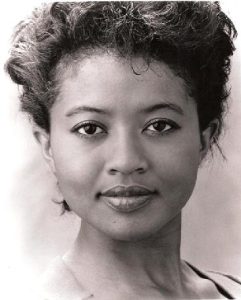Appendix: Interview with Velina Hasu Houston, MFA, PhD

This interview was conducted via email by this project’s research assistant Grace Johnson (a 2023 Fisk University graduate) and Dr. Velina Hasu Houston on December 1, 2023.
Grace Johnson: Why did you write Alabama Rain?
Velina Hasu Houston: The writing of the play was generated by conversations with my father about domestic abuse being taboo among his ancestors and in the Black communities in which his people lived. That was not to say that it didn’t exist; it simply often was not discussed. He wondered if this was a consequence of the enslavement of Africans, a time in which so much abuse of different kinds occurred that could not be talked about for fear of violence, even mortal violence. He pondered if the necessity to bear such things in silence took hold and transmitted to subsequent generations.
Incest was one of the most critical dimensions of that abuse and it was rarely, if ever, discussed.
What interested me about my father’s sharing is that he observed how women who experienced abuse or who were aware of it taking place did not talk about it. He felt as though in Black families, women’s voices were suppressed when it came to such topics; suppressed by each other, by the males in their family, and by an inner determination to not let the outside world see the problems of their inside worlds. They were to protect their men and the men of the community against any threat. They were to preserve a façade that allowed their families to sustain in a mainstream world that did not respect them.
These deliberations led me to write Alabama Rain. Because of my own multicultural and mixed race background, I decided to explore the issues in the context of an interracial family. In addition, it was important to me that the interracial family was of multiple colors – red, Black, yellow, and/or brown, as Paul Spickard says. That led me to create characters who were Black, indigenous Native American, and biracial Black and Native American.
The silence that women are often forced into to protect the patriarchal world in which they exist interests me. The breaking of that silence is, to me, the outcome of a woman beginning to ask questions about her circumstances and, as a result, transforming.
The play had a staged reading with three days of rehearsal at The Women’s Project, New York, directed by Tina Chen Josephson. After that, it was not produced. Several theatres expressed interest, but all of them balked at the idea of telling a story about incest in a Native American and African American family. More silence.
Hasu Houston: Let me address the question of why I write, beyond the specifics of one play.
Generally speaking, I approach dramatic writing via a character and his or her journey, with a specific view that there’s a reason to tell that story now – what I call the particularity of the moment. It’s important to understand the depth and breadth of my protagonist, what is at stake for that protagonist, and what happens to disrupt the protagonist’s standard existence. This disruption galvanizes desire, and critical desire as a motivator of action interests me. I write because I must. I investigate the transformative nature of identity in the dynamics of culture, ethnicity/race, gender, sexuality, and class. In my writing, magical realism manipulates the continuum, ghosts intermingle with living human beings, time is discombobulated, and cultures coalesce and collide; suicide and suicidal ideation are included because they are a part of the legacies of humanity.
I was raised by an immigrant mother and a father from several underrepresented groups who believed in human commonalities and not in the borders drawn to separate us based on presumed differences. This informs my writing. Mythology, magical realism, Japanese folklore, and Far Eastern and U.S. perspectives infuse my historical and contemporary subjects. My characters possess an innate drive to move fluidly across borders as they explore their desires, discover values, and activate them.
As a writer, I do not plug into the formulaic structures used to define success, structures that were established by a nation that enslaved, tortured, stole land and property, and incarcerated people like me for generations. I create my own pathway, cultivating artistic expression that is energized outside of the establishment, although sometimes the establishment has affirmed it. Both spaces are equally as important to me.
Either as compliment or criticism, I’ve been told that I have a poetic voice. I have an organic interest in what happens when a new entity enters an established arena. That could be a new person in the neighborhood, a new person in a new family, or a new person in a new country. I am interested in the impact of a new environment on an individual who simply wants to survive. That thread is present in almost everything that I write. I try to create with consideration, breadth, and depth; however, I’m not perfect and, therefore, my creations can’t be. We strive and hope, yes? I listen, revise, and refine, utilizing process to cultivate the play towards a higher existence.
Best wishes!
Velina Hasa Houston, MFA, PhD
ヒューストン . べリーナ . ハス
Writers Guild of America-west
Dramatists’ Guild
League of Professional Theatre Women
Alliance of Los Angeles Playwrights
Odyssey Theatre Ensemble, Writers’ Odyssey Associate Artist
Hero Theatre, Advisory Council
Faculty: University of Southern California
USC School of Dramatic Arts & USC Irvine Young Academy
USC Distinguished Professor, USC Resident Playwright
Board of Trustees, Berklee College
http://www.velinahasuhouston.com
http://www.matchabook.wordpress.com
she/her/hers/kanojo/ella
non-binary ethnically



